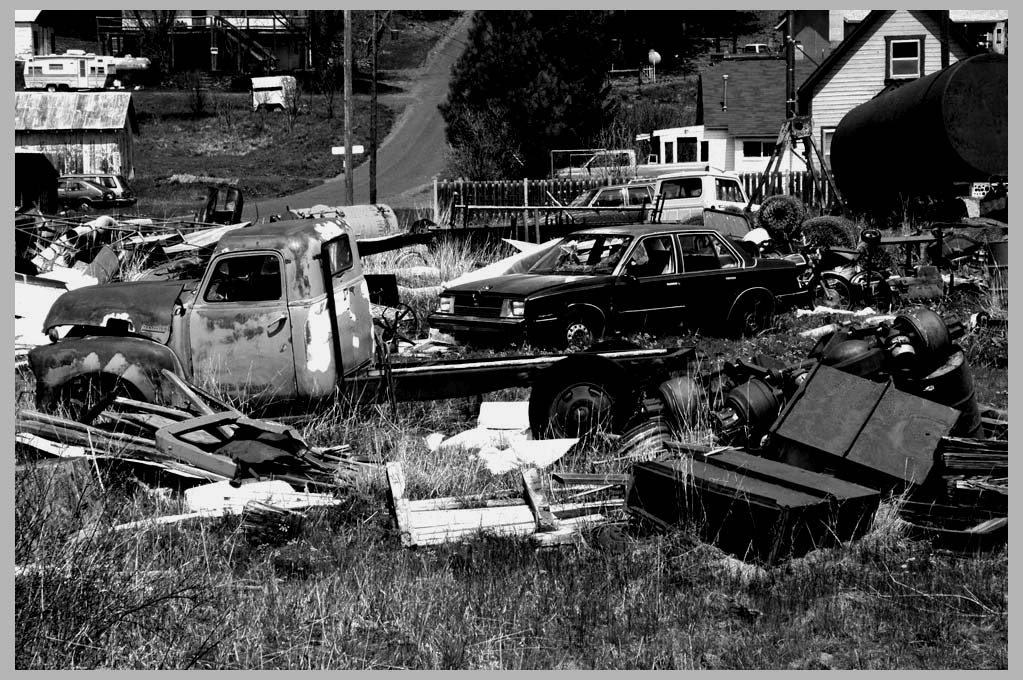
Oil Century—sinking . . . .
On the road in the American Northwest.

Oil Century—sinking . . . .
On the road in the American Northwest.
Cars & Car Culture?
We shape the world, and the world shapes us . . .
Along the way, on my treks by bike, I find in general that
North Americans are good people. Honest, hard-working,
always ready to help.However—put even a retired school teacher or grandmother
behind the wheel of a car, and instantly, before our
very eyes, they are transformed into mean-spirited,
blood-lusting hell-hounds, more than willing to run
their own children off the street.Unfortunately for the rest of the world, the former
naturally tends to place the latter behind the wheels
of government as well.Yet, because we can evidently only perceive this deep and
destructive division of America's national psyche
by stepping resolutely out of our vehicles, loyal citizens
of Car Culture will, I fear. be unable to clearly
see the state into which they have unknowingly driven
themselves. That is, until the world's gas tank hits empty.Addiction to oil? The analogy is a poor one, I think. The
addict, it seems to me, always has a certain awareness
that what he or she is doing is wrong, is self-destructive.
This awareness leads to guilt. To get behind the wheel
of a car, however, is to turn the key on a very much more
powerful illusion; it is a kind of all-self-enveloping worldview,
one which can only be sustained as long as there is a
complete and total denial of its false and contradictory
nature.And worldviews, unlike the highs of drugs, do not
wear off. Consider how the philosophy of fascism blinded
the Germans and Italians—two of the greatest and most
creative of European cultures—into seeing themselves as
essentially heroic protagonists acting out the perennial drama
of Good vs. Evil (as portrayed in, say, Wagner's opera,
Reinzi). In a similar way, from inside the car, we are blinded
by the comforting sense of mechanical power and that all
is peace, order and tranquility. From outside the car, however,
in truth, at least in my view, all is fragmentation and destruction.As the finale scene of the opera rapidly closes in on us,
so the illusions generated by car culture will come to
an end whether we like it not. To my mind, the urgent
question is: will this happen in a happy, rational and
creative way, as well it should if only our ways of thinking
about energy might reach quickly enough the sophistication
of our information technology. Or will we instead, like the
National Socialists before us, drive our illusion straight
into the inferno we call "the pleasures of the road."